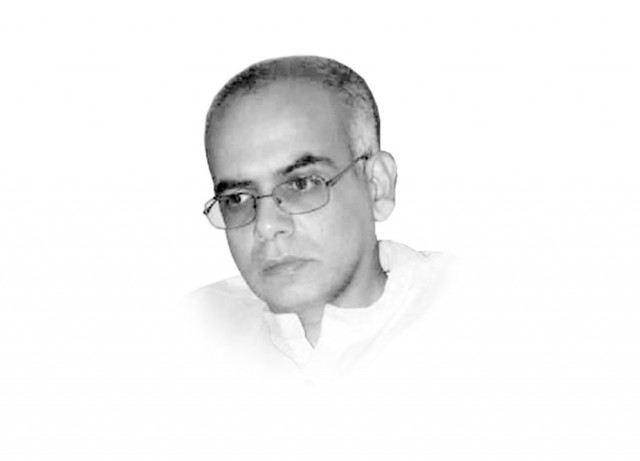Philanthropic impulses of the rich & famous
The likes of Bill Gates and Mark Zuckerberg have spent millions in philanthropic efforts

The writer holds a PhD from the University of Melbourne and is the author of Development, Poverty and Power in Pakistan, available from Routledge
Many of the richest people in the world have also turned towards philanthropy, with well over a 100 billionaires from more than a dozen countries pledging large sums to development causes just during this past year alone. Celebrities, including singers and actors, have also jumped into the fray. In the US, for example, specialised organisations have been formed to help celebrities, such as actors become effective activists, and to even provide suggestions concerning social causes in which they can become involved. The commitment of individually-owned foundations to finance development issues is also impressive. The Bill and Melinda Gates Foundation alone has given billions of dollars for development efforts, in turn becoming the largest non-state funder of the World Health Organisation.
Philanthropic individuals and organisations have done some good work. Celebrities have used their fame to draw public attention to a range of global problems for years now. Consider, for instance, how Lady Diana shed light on the need to ban landmines. Proponents, in fact, argue that growing celebrity activism actually represents a democratisation of foreign policy processes, which is placing matters of human concern on the international agenda, overriding the realpolitik interests of nation states. Such optimism sees celebrity activists complementing the work of specialised development agencies, including those affiliated with the UN, as well as NGOs.
Others, however, point out that ‘philanthro-capitalism’ is weakening global governance structures, creating the problem of unstable financing of humanitarian efforts by subjecting them to the whims and fancies of individuals and other profit-making entities.
With increasing pressure to find new sources of funding, development agencies also actively woo multinational corporations, which in turn make contributions to development causes. Multinationals, however, utilise these contributions to improve their brand image without addressing exploitative practices within their own supply chains, such as low wages and hazardous work environments for poor labourers across the developing world, or ecological destruction due to excessive resource exploitation.
According to an international watchdog group, Global Policy Forum, philanthropic foundations created by wealthy individuals are also inappropriately influencing international development agendas. The Gates Foundation has been a major proponent of market-based and bio-medical approaches towards addressing global health challenges. Perhaps this is not surprising, given that many of the Gates Foundation's staff had held positions at large pharmaceutical companies including Merck, GSK, Novartis and Bayer. On the other hand, the Rockefeller Foundation has been chastised by international grassroots groups for its role in endorsing and supporting big agricultural models, privatising food policies, and expanding the power of multinational companies like Monsanto.
The increase in philanthropic giving by the super-rich also points to the growing inequality between the haves and the have-nots, due to which the super-rich are placed in the position to become so generous in the first place.
While the aim here is not to discredit the intentions of celebrities, or philanthropic impulses of the ultra-rich to contribute to making the world a better place, it would be better if states and specialised development agencies put in mechanisms to scrutinise and harness the contributions of affluent individuals rather than allowing them to exert direct influence on what the global development priorities should be, or how they need to be addressed.
Published in The Express Tribune, January 29th, 2016.
Like Opinion & Editorial on Facebook, follow @ETOpEd on Twitter to receive all updates on all our daily pieces.














COMMENTS
Comments are moderated and generally will be posted if they are on-topic and not abusive.
For more information, please see our Comments FAQ